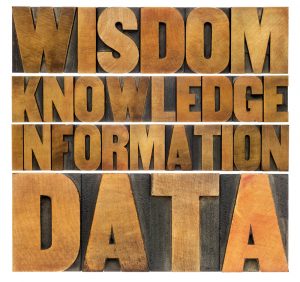These are dangerous times. Never have so many people had so much access to so much knowledge and yet have been so resistant to learning anything. – Tom Nichols, Professor of National Security Affairs at the U.S. Naval War College, and five-time undefeated Jeopardy! Champion.
Lately, I’ve noticed increasing criticism of and disdain towards professionals regardless of their areas of specialization. It’s as if ‘experts’ are a now a silly myth. Are they really something to shrug at, or dismiss like an annoying opinion poll? This growing mindset is disturbing in part because I invested almost 10 years to earn my doctorate in psychology and I have been equally dedicated while working in my chosen profession.
 In the past, I used to chuckle at anecdotal arguments against facts that were 100% evidence-based. This was mainly because I assumed most people were informed or at the very least humble enough to recognize when they weren’t experts on a given topic. Moreover, when it mattered, they would seek advice from someone who really knows about the relevant subject area.
In the past, I used to chuckle at anecdotal arguments against facts that were 100% evidence-based. This was mainly because I assumed most people were informed or at the very least humble enough to recognize when they weren’t experts on a given topic. Moreover, when it mattered, they would seek advice from someone who really knows about the relevant subject area.
I’m no longer laughing.
Right before my eyes, I see too many instances where experts are ignored in favour of people who have a big audience regardless of their knowledge or credibility. For example, public figures and celebrities with zero medical or health-related education that declare vaccines are useless, or worse … dangerous … despite reams of scientific evidence that shows their true value. Similarly, powerful politicians and special interest groups have joined forces to ignore the science and knowledge around climate change. These folks are determined to deny that climate change is real. They argue that the scientific literature is fake.
It’s off-putting to watch someone disregard a genuine specialist, and then seek help or guidance from a source that has no skills or established credentials. For instance, Adam Frank noted in his recent article, whether it’s legal advice or car repairs, getting services from someone with relevant training and experience is usually what people want. Normally, these are decent, sought after qualities.
So what is happening? Why has the use of the word ‘expert’ significantly changed?
In part, the problem stems from the evolution of social media. We live in an era where anyone who wants to share their thoughts, whether it’s a well-informed thought/opinion or it is based on biased and superficial opinions, can easily reach out to thousands if not millions. In today’s world, it’s easy to ‘publish’ whatever we want on websites, YouTube, or blogs without the obligation of going through an editor or a peer-review process.
Why are we so ready to make the experts irrelevant? In our professional and our personal lives, we must continually question the printed words that come from newspapers, social media, and magazines. This is a crucial time when we should reconsider our expectations of what an expert is, and reclaim the importance of finding the ‘real’ ones.
One advantage of this new reality is that it’s lowered the barriers to public self-expression. It’s made information sharing appear more democratic. Yet, one glaring disadvantage is that occasionally well-funded misinformation can get passed off as factual (e.g., the combined efforts of fossil fuel industry insiders and certain politicians who reject the existence and threats of climate change).
Similarly, in unregulated fields and industries, any ‘coach’ or ‘consultant’ can publish a website and promote themselves as a service provider. When the marketing is effective, it is very difficult to distinguish between better and poorer quality services. This means that there is a lot of variety in the coaching and consulting industries.
Consumers deserve more
I won’t say that people need ‘big’ credentials to excel at what they are doing, but given what’s at stake for people’s businesses and careers, shouldn’t consumers demand and be given more? At a minimum, shouldn’t we all request a certain level of experience and training? When you’re paying an ‘expert’ to solve a problem that has you stumped is a few days of training enough?
In previous articles, I’ve discussed some of the complex challenges that recent graduates and more experienced workers are facing. The circumstances that both cohorts now experience leave many stuck and unsure of what to do to get unstuck and make gains in their careers. The changes that we can anticipate within many workplaces due to automation will add to those challenges.
Finally, when it comes to your career or your employees, the stakes are high. Count on credible experience and knowledge that you know you can trust.
If you’d like to discuss any career-related challenges that you’re experiencing – or you’d like to do some strategic planning to prevent these types of problems, I invite you to contact me by email, phone, or via direct message on Twitter, Facebook, or LinkedIn to discuss any of these topics in more detail.
More than career coaching, it’s career psychology®.
I/O Advisory Services – Building Resilient Careers and Organizations.
Easily share this article using any of the social media icons below.




